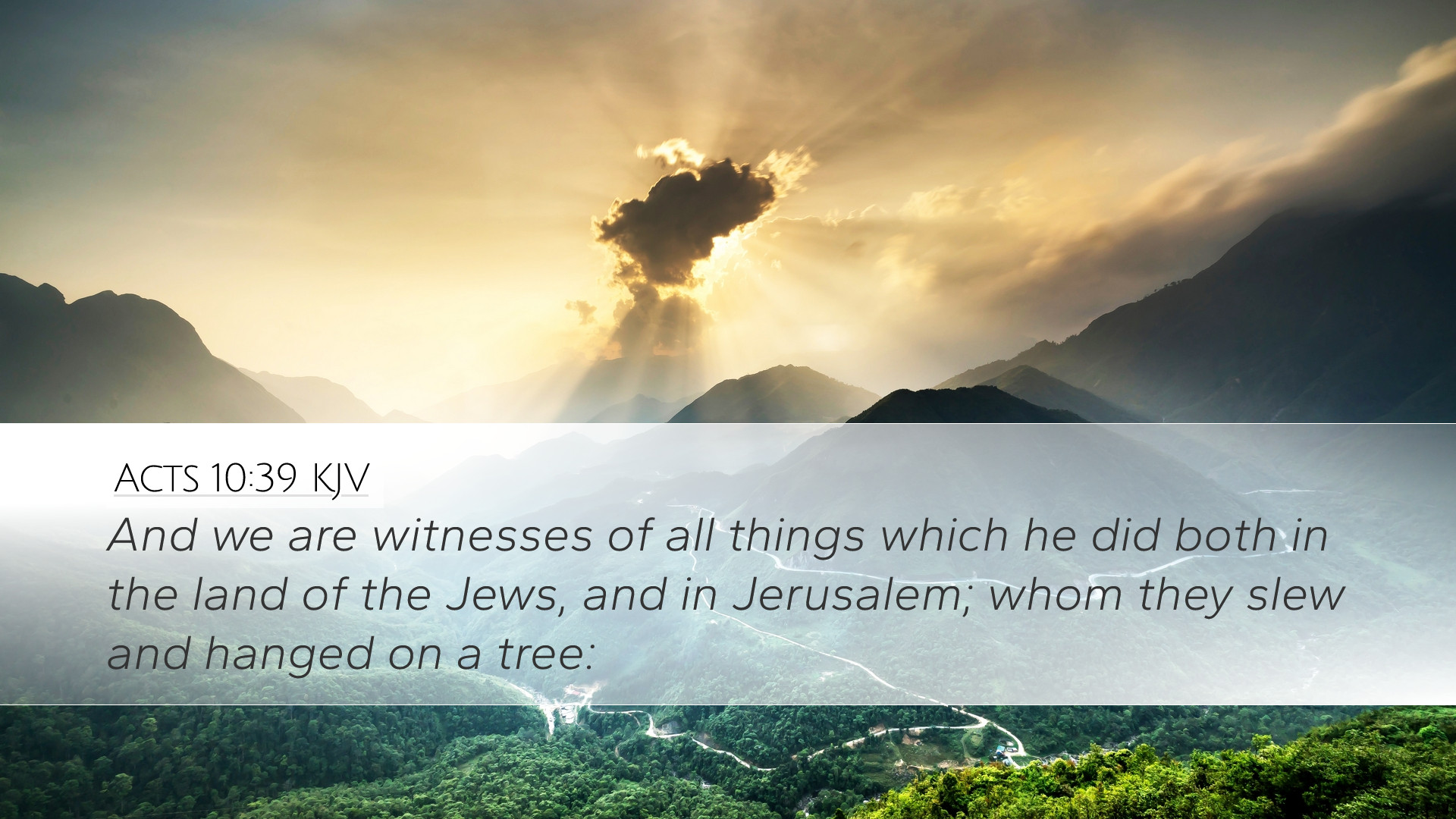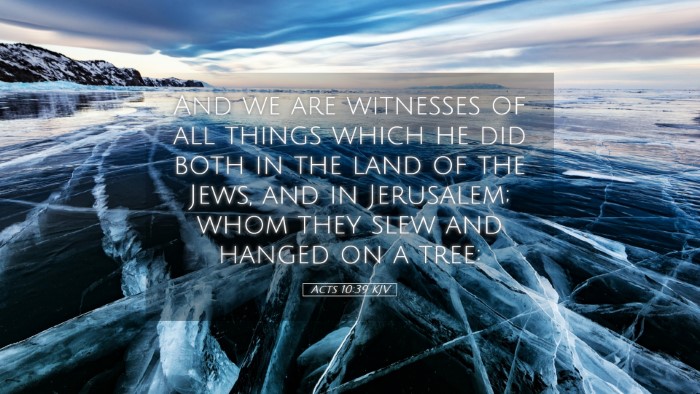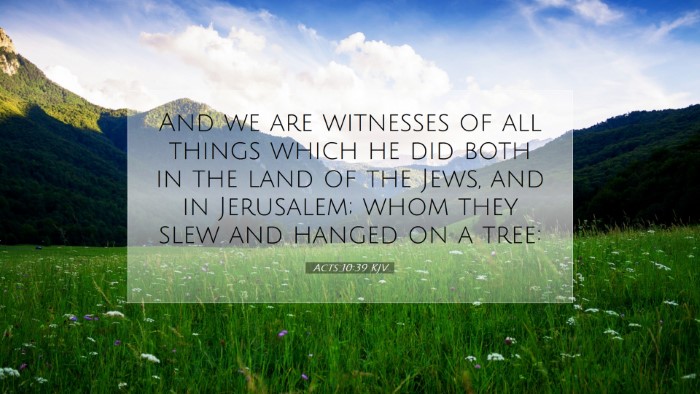Commentary on Acts 10:39
Acts 10:39 states: "And we are witnesses of all things which he did both in the land of the Jews, and in Jerusalem; whom they slew and hanged on a tree." This verse is part of Peter's sermon to Cornelius and his household, emphasizing the Apostolic witness to Jesus's life, death, and resurrection.
Contextual Background
This passage occurs in a pivotal moment in the early Church and is central to Peter's revelation regarding Gentile inclusion in the Christian faith. Understanding the socio-political environment of the time enhances our comprehension of this proclamation.
Importance of Witnesses
Matthew Henry notes that the Apostles' role as witnesses is significant; it authenticates the events surrounding Jesus's ministry and death. Their testimony is grounded in firsthand experience, which carries weight in both Jewish and Gentile contexts.
- Henry emphasizes the seriousness of being a witness: "A witness bears direct testimony to facts he has seen and heard, making the message credible and authoritative."
Jesus's Ministry
Albert Barnes elaborates on the phrase "all things which he did." He asserts that Jesus's ministry encompassed a myriad of acts, from teaching to miraculous healings, asserting his divine authority in a way that was documented and can be historically verified.
- Barnes lists examples of Jesus's ministry, such as the Sermon on the Mount, his miracles (healings, exorcisms), and acts of compassion.
- This comprehensive inclusion serves to show Jesus as the fulfillment of Old Testament prophecies that the Jewish audience would recognize.
The Death of Jesus
Peter's reference to Jesus being "slew and hanged on a tree" is critical to understanding the nature of Jesus's sacrifice. Adam Clarke draws attention to the significance of this description in relation to Deuteronomy 21:22-23, where being hung on a tree signifies a curse.
- Clarke notes that "Jesus, by his death, took upon himself the curse for humanity, thereby fulfilling the law while establishing the new covenant."
- This view aligns with Paul's later teachings, specifically in Galatians 3:13, elucidating the redemptive work of Christ on the cross.
Theological Themes
There are several theological implications arising from Acts 10:39 that are important for pastors and theologians to consider:
- The Apostolic Authority: The foundation of Christian witness lies in the affirmation of the Apostles, a theme prevalent in the book of Acts.
- Inclusivity of the Gospel: This moment marks a strategic pivot in the Christian mission, embracing the Gentiles and underscoring the universal nature of the gospel.
- Redemption and Sacrifice: The passage underscores the core Christian belief in Jesus's sacrificial death, which is central to soteriology.
Contemporary Application
For today's church, Acts 10:39 invites reflection on several levels:
- Witnessing Today: How do modern Christians bear witness to the truths of Christ in their communities? What does it mean to authentically testify to personal experiences with Jesus?
- Engaging with Diversity: The inclusion of Gentiles serves as a reminder for the Church to embrace diversity, recognizing God's love for all humanity.
- Understanding the Cross: The cross remains the central theme of Christian preaching. Understanding its implications not only reveals God’s love but calls believers to live in light of that sacrifice.
Conclusion
Acts 10:39 is integral to understanding the early Apostolic mission and the inclusive nature of the Gospel of Jesus Christ. Through the testimonies of those who witnessed Christ's ministry and resurrection, this verse encapsulates the heart of the Christian message: that the death of Jesus was a necessary act of redemption, fulfilling both legal and prophetic frameworks. As both a historical account and a theological foundation, it stands as a call to witness, to remember, and to participate in God's overarching plan for salvation.


